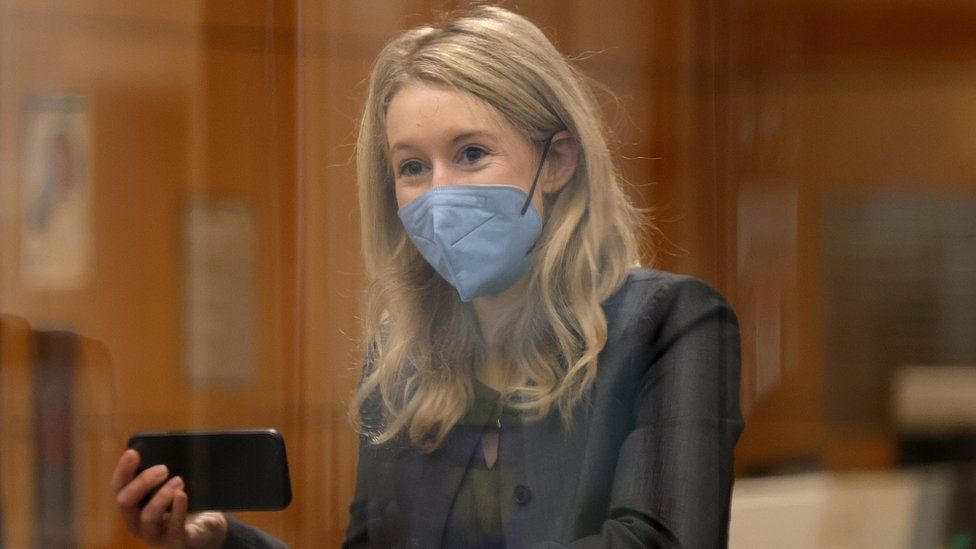
An entrepreneur accused of scamming investors for millions of dollars with a bogus blood test has surprised a US court by testifying in her defence.
Elizabeth Holmes is accused of making false claims about her firm Theranos, including that its technology could detect diseases with a drop of blood.
Ms Holmes, 37, faces multiple charges of fraud and could spend years in jail if found guilty. She denies wrongdoing.
At its peak her firm was valued at $9bn (£6.5bn).
Taking the stand Ms Holmes said her work at Theranos had made her believe in the company's technology.
She explained about how she founded the firm after dropping out of Stanford University, and how her team made an apparent technological breakthrough.
"We worked for years with teams of scientists and engineers to miniaturise all of the technologies in the laboratory," she told jurors.
Throughout the two-month trial, jurors in California have heard testimony from more than two dozen prosecution witnesses. They include patients and investors who prosecutors say Ms Holmes deceived.
Ms Holmes rose to fame in 2013 thanks to technology she claimed could test for multiple diseases using just a few drops of blood from a finger prick.
She attracted high-profile investors including Rupert Murdoch but in 2015 a whistleblower revealed the tests did not work, and the billionaire fell from grace.
By 2018 Theranos had collapsed amid one of the biggest corporate scandals in recent US history.
Ms Holmes has pleaded not guilty to nine counts of wire fraud and two counts of conspiracy.
Her lawyers say she did not intend to defraud, but instead "naively underestimated" the challenges her business faced.
The trial, which began in September, is expected to run until next month.


It's been described as Silicon Valley's trial of the decade.
Books, podcasts, even a Hollywood film has been commissioned about what happened at the company.
Yet up until now it wasn't clear whether Ms Holmes would give evidence - defendants are not obliged to testify in US criminal cases.
Removing her mask the jury was able to see the defendant for the first time.
She smiled and spoke with confidence about the company's origins and why she wanted to help people.
It's a seriously risky move for the defence, as it now opens Ms Holmes up to cross-examination.
The move could be viewed as a sign of weakness, allowing the prosecution at the subject in a fraud case could backfire.
But Holmes clearly believes that she can convince jurors that her intentions were honourable, and that she was unaware of Theranos' major problems.
She has an awful lot on the line. If found guilty she could face up 20 years in prison.
https://news.google.com/__i/rss/rd/articles/CBMiMWh0dHBzOi8vd3d3LmJiYy5jb20vbmV3cy93b3JsZC11cy1jYW5hZGEtNTkzNTU5NTXSATVodHRwczovL3d3dy5iYmMuY29tL25ld3Mvd29ybGQtdXMtY2FuYWRhLTU5MzU1OTU1LmFtcA?oc=5
2021-11-20 02:25:06Z
1038732458
Tidak ada komentar:
Posting Komentar